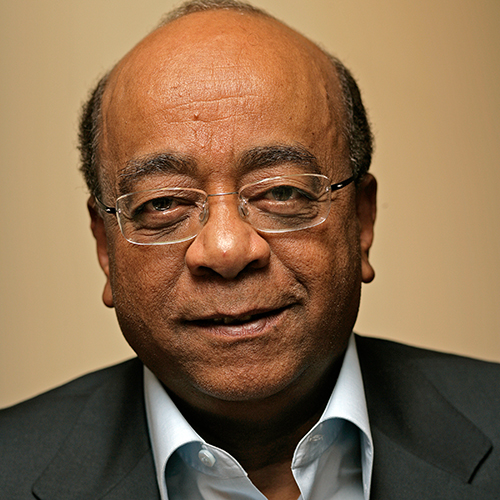As the world prepares for the 4th International Conference on Financing for Development (FfD4) in Seville, Spain, from June 30 to July 3, 2025, the Mo Ibrahim Foundation has released a set of four strategic recommendations designed to ensure Africa plays a more influential role in shaping the new global economic order.
Drawing on robust data and insights from its recent research publication, 2025 Facts & Figures: Financing the Africa We Want, and outcomes from the 2025 Ibrahim Governance Weekend held in Marrakech, the Foundation stresses that FfD4 must not be business as usual.
The FfD4 conference comes at a time when global development cooperation is under pressure—foreign aid is shrinking, military spending is rising, and trust in multilateral institutions is eroding. With African economies still grappling with the fallout from COVID-19, climate shocks, and constrained access to international capital markets, the Mo Ibrahim Foundation argues that FfD4 presents a unique opportunity to reshape the global financial architecture.
“Reforms are overdue. FfD4 must lay the groundwork for a financial system that serves all regions fairly and transparently,” the Foundation noted in a statement accompanying its brief.
The four core recommendations
The Foundation’s recommendations are centered on unlocking Africa’s potential by shifting the development paradigm from dependency to partnership and empowerment. Each recommendation is backed by data, targeted action points for Seville, and lessons from the 2025 IGW.
1. Align with Africa’s priorities and commitments
Multilateral finance must reflect Africa’s own development agenda, particularly the African Union’s Agenda 2063. This means putting African-led strategies and priorities at the center of global financing partnerships, rather than externally imposed frameworks.
2. Maximise Africa’s domestic financial resources
With rising debt burdens and limited fiscal space, African nations need support to mobilise and retain domestic resources—from tax reforms to combating illicit financial flows. Enhancing capacity for revenue collection and financial governance is key to reducing external dependency.
3. Adequately monetise Africa’s natural assets
Africa holds immense natural wealth—from minerals to biodiversity—but often exports raw commodities with little value addition. The Foundation calls for mechanisms that allow African nations to retain more value from their resources, diversify their economies, and grow sustainably.
4. Attract investment in Africa
The continent needs a conducive environment for private capital—both foreign and domestic—to thrive. This includes stability, transparency, infrastructure, and legal certainty. Fostering intra-African investment, particularly in youth-led enterprises and green industries, is also a priority.
Access the full brief
The Mo Ibrahim Foundation’s full FfD4 brief, titled “Financing the Africa We Want,” includes detailed action points for Seville, supporting statistics, and governance-based insights. It builds on the Foundation’s longstanding work in tracking African leadership, development trends, and economic justice.
Looking Ahead to Seville
With leaders, finance ministers, and multilateral bodies converging in Seville, the Foundation’s message is clear: Africa must no longer be treated as a passive recipient, but rather as a full and equal partner in shaping global economic policy.
As Mo Ibrahim has often stressed, “We cannot finance development for Africa without Africa.”
FfD4 may prove to be the forum where that transformation begins.
DISCLAIMER: The Views, Comments, Opinions, Contributions and Statements made by Readers and Contributors on this platform do not necessarily represent the views or policy of Multimedia Group Limited.
DISCLAIMER: The Views, Comments, Opinions, Contributions and Statements made by Readers and Contributors on this platform do not necessarily represent the views or policy of Multimedia Group Limited.


